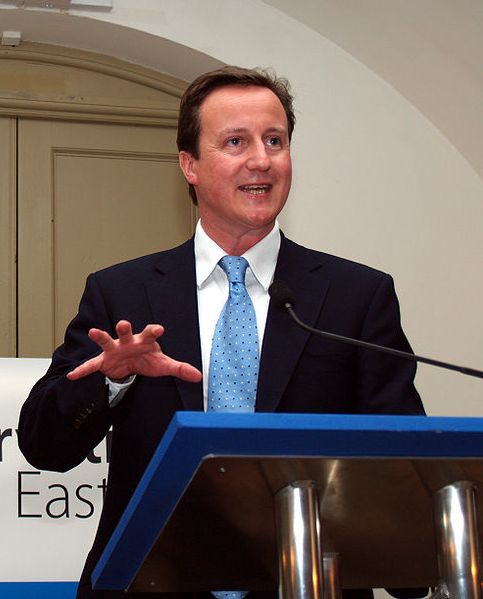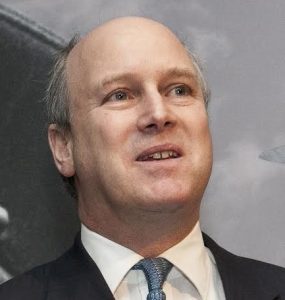
Finest Hour 167
A Great Briton

August 2, 2015
Finest Hour 167, Special Issue 2015
Page 06
By the Rt. Hon. David Cameron
 Prime Minister David Cameron speaks inside the Members’ Lobby on 30 January 2015We are here to honour a great leader—and a great Briton.
Prime Minister David Cameron speaks inside the Members’ Lobby on 30 January 2015We are here to honour a great leader—and a great Briton.
He was born in my constituency and is buried in my constituency.

2024 International Churchill Conference
A full fifty years since his funeral, when the cranes along the Thames dipped low and the streets were lined with vast silent crowds, the sheer brilliance of Winston Churchill remains undimmed.
I will never forget the first time I heard that voice. I was at my grandmother’s house, as a young boy, and looking through a box of dusty old things I found some vinyl records of his speeches. I put one on the record player and the phrases boomed out:
“Victory at all costs, victory in spite of all terror, victory, however long and hard the road may be…”
“Let us to the task, to the battle, to the toil…”
And of course: “Some chicken, some neck.”
Churchill the orator made a big impression on me as a boy. And now that I am Prime Minister—there are so many Churchills to respect and admire.
There is Churchill the global statesman. Go to China and you remember it was he who first recognised the People’s Republic. Go to Israel and you remember he helped realise the dream of a Jewish homeland. Go to Pakistan and you imagine him fighting on the frontier with the Malakand Field Force. From the Battle of Omdurman to Britain’s acquisition of the H-bomb stretched nearly sixty years, and throughout it all he was right at the heart of events.
Then there is Churchill the bon vivant. The bottles of Pol Roger in Number 10, the practice of taking his Cabinet out for lunch at the Savoy Grill; sadly for my Cabinet, that is not quite the current regime.
And then—often overlooked—there is Churchill the reformer. This was the man who pushed for prison reform, championed old age pensions, and introduced labour exchanges for the unemployed. Churchill believed that a nation was made great not just by its military might but by how its poorest and frailest citizens were treated, and that is another important part of his legacy.
But if there is one aspect of this man I admire more than any other—it is Churchill the patriot.
He knew Britain was not just a place on the map but a force in the world, with a destiny to shape events and a duty to stand up for freedom. That is why in 1940—after France had fallen, before America or Russia had entered the war, he said this:
“Hitler knows that he will have to break us in this island or lose the war. If we can stand up to him all Europe may be free—and the life of the world may move forward into broad, sunlit uplands.”
Churchill was confident that freedom and democracy would win out over barbarism and tyranny in the end—and it did. And with every affront to freedom in this century, we must remember that courage and resolve in the last century.
Fifty years ago, when Churchill was dying, my older brother was a tiny baby. My mother used to wrap him up each day, put him in his pram and wheel him along to Hyde Park Gate. There, along with crowds of people, they stood outside that red brick house as a mark of respect.
Such was the affection—and half a century on, such is the affection. History has been kind to Winston Churchill, not because he wrote it, but because he shaped it.
He left Britain more free, more secure, more brave and more proud—for that we will always be grateful to him.
The Rt. Hon. David Cameron MP is Prime Minister of the United Kingdom. Remarks published with permission from No. 10 Downing Street.
Subscribe
WANT MORE?
Get the Churchill Bulletin delivered to your inbox once a month.



